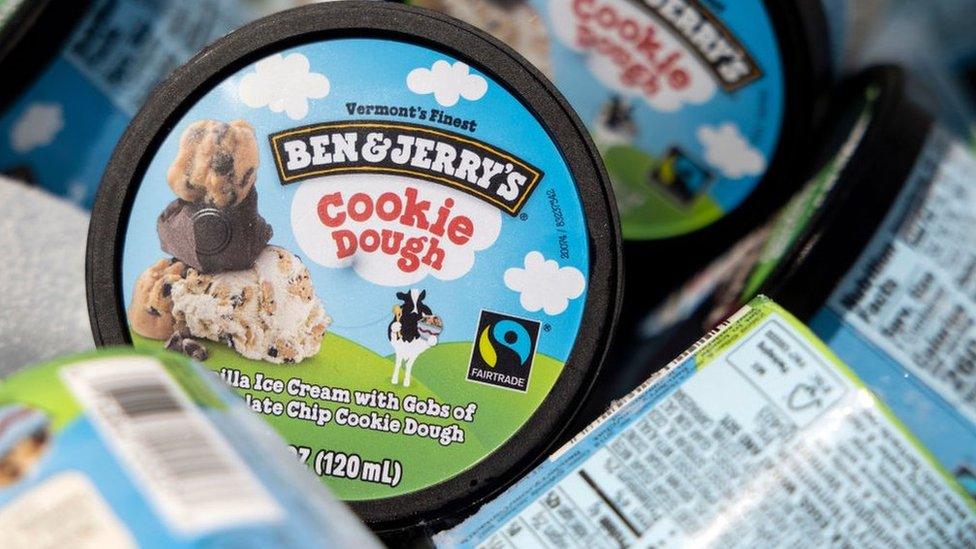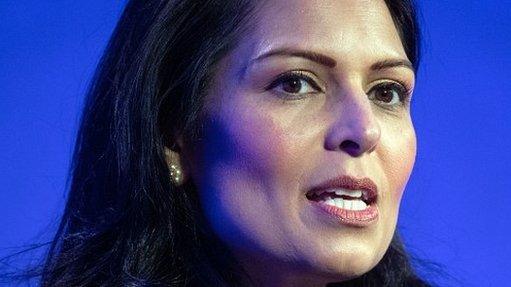Ben & Jerry's to stop sales in Israeli settlements in occupied territories
- Published

Ben & Jerry's has said it will stop selling its ice cream in Israeli settlements in the occupied West Bank and East Jerusalem.
The US company said sales "in the Occupied Palestinian Territory (OPT)" were "inconsistent with our values".
Israeli Prime Minister Naftali Bennett said the move was "morally wrong" and would prove to be "financially wrong".
The West Bank and East Jerusalem have been under Israeli control since the 1967 Middle East war.
More than 600,000 Jews live in about 140 settlements there. Most of the international community considers the settlements illegal under international law, though Israel disputes this.
In a statement shared to its Twitter and Instagram pages on Monday, Ben & Jerry's said its decision reflected the concerns of "fans and trusted partners".
The changes would be made by allowing current licensing arrangements to expire at the end of next year, it added.
Allow X content?
This article contains content provided by X. We ask for your permission before anything is loaded, as they may be using cookies and other technologies. You may want to read X’s cookie policy, external and privacy policy, external before accepting. To view this content choose ‘accept and continue’.

"We have a longstanding partnership with our licensee, who manufactures Ben & Jerry's ice cream in Israel and distributes it in the region," the statement said.
"We have been working to change this, and so we have informed our licensee that we will not renew the license agreement when it expires at the end of next year."
Ben & Jerry's also runs two "scoop shops" in Israel and said it would distribute its goods in Israel through a different agreement, the details of which would be announced "when we're ready".
UK firm Unilever, which has owned Ben & Jerry's since 2000, says the decision was taken and announced by Ben & Jerry's and its independent board, but it remained "fully committed" to maintaining a presence in Israel.
Ben & Jerry's Israeli licensee was quoted by the Haaretz newspaper as saying: "Global Ben & Jerry's decided not to renew the agreement with us in another year and a half in light of our refusal [to comply] with their demand and stop selling throughout Israel."
"We call on the Israeli government and consumers not to permit a boycott of Israel... Ice cream is not part of politics."
Israeli politicians reacted furiously to the announcement.
"The boycott of Israel - a democracy surrounded by islands of terror - reflects a complete loss of bearings. The boycott does not work and will not work, and we will fight it with all our might," Mr Bennett said.

Ben Cohen and Jerry Greenfield set up the company in 1978
Foreign Minister Yair Lapid called Ben & Jerry's move a "disgraceful capitulation" to anti-Semitism and the Boycott, Divestment and Sanctions (BDS) movement, which calls for a complete boycott of Israel over its treatment of the Palestinians.
"Over 30 states in the United States have passed anti-BDS legislation in recent years. I plan on asking each of them to enforce these laws against Ben & Jerry's," he said.
A spokesman for BDS, Mahmoud Nawajaa, it welcomed Ben & Jerry's decision and called on the company "to end all its procedures with the apartheid Israel".
Ben & Jerry's - which was founded in 1978 by best friends Ben Cohen and Jerry Greenfield - has a track record of campaigning on social issues such as LGBTQ+ rights and climate change.
Related topics
- Published11 August 2020

